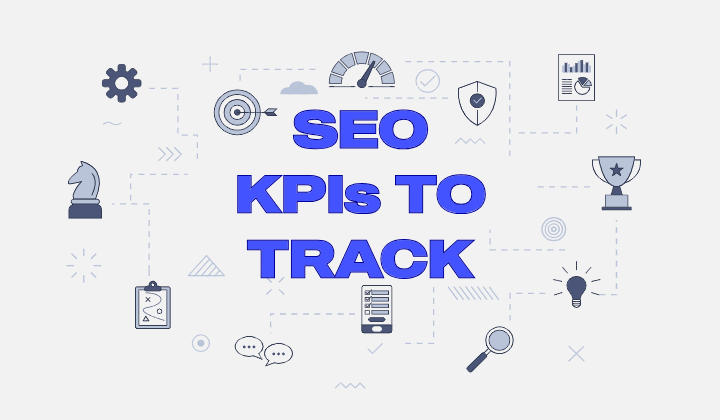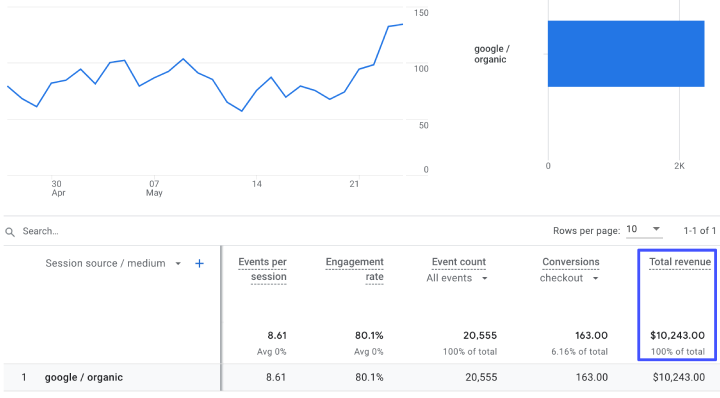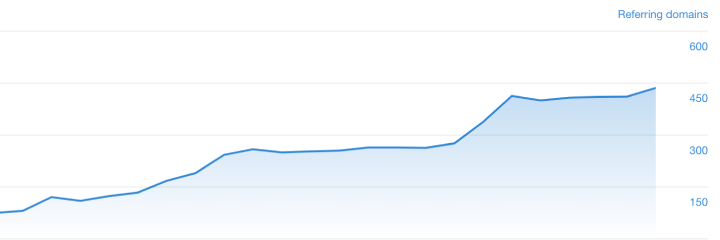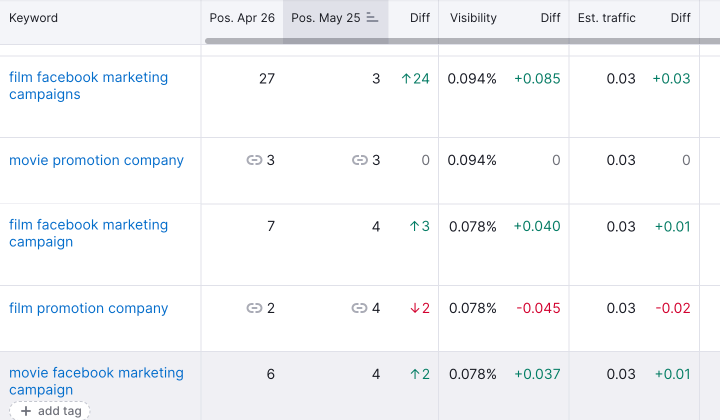
SEO is pivotal in staying ahead and maximizing online visibility for every business. But how can you measure the effectiveness of your SEO campaign?
That’s where we need to look at the SEO Key Performance Indicators (KPIs). This blog post will explore the 5 most important SEO KPIs every business should track. By understanding and relying on these KPIs, you can have maximum clarity on your SEO efforts, investments in the campaign, and the whole dynamics of the progress.
Let’s dive in.
Table of Contents
1. Revenue from Organic Search Traffic
The main objective of even doing SEO is to grow your business’s revenue. After all, SEO is not just about improving rankings and getting more traffic; it’s a powerful marketing channel designed to drive tangible results and boost your bottom line. That’s precisely the way to think about it: as a revenue-generating machine.

To gauge the impact of your SEO campaign on revenue growth, you need to measure the revenue generated from organic search traffic. One of the most powerful tools at your disposal is well-known Google Analytics (GA).
By setting up proper tracking and e-commerce goals within GA, you can gain valuable insights into the revenue generated by visitors who visit your site, specifically from organic search. This data allows you to attribute specific revenue figures to your SEO efforts, enabling you to assess the return on investment (ROI) and adjust your strategy if needed.
So, settle for more than just traffic numbers or rankings. Instead, focus on the ultimate goal – revenue growth – and leverage the robust capabilities of Google Analytics to understand how your SEO efforts translate into tangible business results.
2. ROI from SEO Investment
One of the most critical KPIs in SEO is measuring your campaign’s ROI. It’s essential to determine whether the resources and budget you allocate to SEO are actually driving meaningful income for your business.
Consider it a simple question: “Am I going to get a 4-to-1 return?”
In other words, will you generate four dollars in revenue for every dollar you invest in SEO? While achieving a 4-to-1 ratio may not always be feasible, guiding your decision-making is an excellent principle. By adopting this mindset, you evaluate where your dollars are going and whether your investments will likely yield a positive return.
To calculate your ROI from SEO, you can use simple tools like Excel or Google Sheets to manually track and analyze the data.
Understanding the ROI from SEO is crucial not only for evaluating the effectiveness of your current strategies but also for optimizing your future investment decisions. By monitoring and analyzing your ROI, you can allocate your resources wisely and ensure that your SEO efforts generate meaningful returns for your business.
3. Organic Search Traffic
This one is much more obvious and often used. Measuring the growth of your organic search traffic every month is crucial for evaluating the effectiveness of your SEO campaign.
While there may be fluctuations or periods of stabilization, throughout 6 to 12 months, you should observe a consistent upward trend in your organic search traffic.
Ultimately, organic search traffic growth should go hand in hand with revenue growth. As your organic traffic expands, you have a larger pool of leads and potential customers interacting with your website. Such increased exposure and engagement can lead to higher conversion rates and, ultimately, revenue growth for your business.
With this KPI, Google Analytics remains the go-to tool for tracking and analyzing your organic search traffic. It provides comprehensive data on the number of visitors coming to your site through search engines, their behavior, and the conversions they complete.
At this point, you could focus on these three KPIs and be good.
But a few other KPIs are valuable to track as well.
4. Unique Linking Root Domains
While not a KPI that requires frequent tracking, monitoring the number of unique linking root domains can be beneficial because backlinks are one of the vital ranking factors – this metric focuses on the number of different websites linking to your website.

A diverse range of websites with unique IP addresses linking to your site carries significant weight in Google’s assessment of your website’s credibility. It contributes to growing your website’s authority, positively impacting your long-term SEO performance.
Over time, it’s crucial to see an increase in referring domains. This growth signifies your website gaining recognition and attracting votes from various reputable sources.
You can rely on popular link analysis tools like Ahrefs or Majestic to measure and analyze this metric. These tools provide insights into the number and quality of backlinks pointing to your website, helping you evaluate and enhance your link-building efforts for improved SEO performance.
5. Individual Keyword Rankings
While tracking individual keyword rankings used to be the primary KPI for SEO professionals back in the day, now it has become less reliable for several reasons.

First, GEO location. Google customizes search results based on the user’s location, leading to variations in SERP rankings.
For example, if you search for “accountant” in Allen, Texas, Google will prioritize showing accountants in that area, impacting the overall ranking results.
Personalization is another factor to consider. Google tracks user browsing behavior and serves personalized results based on individual preferences and browsing history. This means search results can differ from person to person, making it challenging to rely solely on keyword rankings.
However, tracking specific keywords over time is still essential, mainly if you are targeting a particular keyword phrase.
While targeting one keyword, you will likely rank for related keywords stemming from the same seed keyword. So, monitoring the progress of your targeted keyword is valuable. But also remember to track the total organic search traffic directed to your page.
You can use tools like Ahrefs or similar to track and analyze keyword rankings. They provide insights into keyword performance, helping you gauge the impact of your SEO efforts on specific target keywords.
How often to analyze these SEO KPIs?
It’s essential to strike a balance. While it can be tempting to track metrics daily obsessively, focusing on broader timeframes is more practical and effective.
What truly matters is the month-to-month, quarter-to-quarter, and year-to-year growth. By regularly tracking and analyzing these KPIs within these intervals, you can ensure you’re on the right track and make necessary adjustments.
Avoid getting too wrapped up in daily fluctuations, as there will naturally be fluctuations in traffic, keyword rankings, and linking root domains on a short-term basis. Instead, prioritize the long-term growth of your business and use regular reviews to inform your strategic decisions.
Remember, it’s about maintaining a consistent cadence of analysis and pivoting based on the trends and insights you uncover rather than becoming overly fixated on daily fluctuations.
At BIG ROKS, we rely on all these 5 key SEO KPIs while working on our clients’ SEO Campaigns.
If you want to upgrade your SEO campaign and discuss your business goals – let’s talk.
